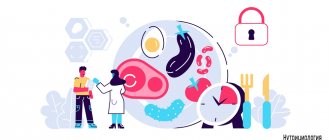In this article I would like to share my experience about one-day fasting on water. Tell us about the basic rules for carrying it out. Firstly, a one-day water fast means a 36-hour fast, and a day water fast means a 12-hour fast. In fact, there are few rules of conduct. The most important thing is a strong intention to start and continue. The rest will come on its own. Each person will have their own personal fasting experience that is unlike any other. But let's return to the rules of one-day fasting.
General information
Short, that is, one-day fasting, was practiced in ancient times.
For example, this was done by Socrates, who believed that food must be seasoned with hunger. Such “treatment” was also practiced by ancient doctors, who were convinced from experience that hunger can be treated. In fact, there is a lot of common sense in this thesis, since modern people are prone to overeating. Short daily fasting is very beneficial for the body. It makes it possible to cleanse it, stimulate the function of the immune system, keep the body in good shape and even cure some diseases. And even if a person fasts one day a week, then with the right approach to this process, such a system will make it possible to obtain a tangible effect. how to properly fast for 1 day, how to recover from fasting , and how to tolerate a 24-hour abstinence from food correctly.
Creating Intention and Planning
Before you start a water fast, you need to plan everything carefully and understand why you need it. We'll walk you through all the important steps in this first step.
Determine the exact purpose of fasting
Ask yourself what you want to take away from this experience and use that goal to set an intention for the day. You may find that you get much more out of fasting if you have a clear intention defined by your goal. Consider whether you have any goals for spiritual or mental development, or if you are simply trying to benefit the physical body from this process. Reflect on a topic, question, or goal.
- Water fasting cleanses the body of toxins . Not eating during the day can help your body get rid of toxins, waste and other harmful substances that have accumulated in your body.
- Fasting for Breakthrough . Perhaps you need to find an answer to a problem, understand a situation, generate an idea, or have an epiphany. Fasting can help create a special state of mind that makes it easier to solve your problems. (1)
- Fasting combined with deep meditation, yoga, or sensory deprivation . This combination allows you to explore the depths of your mind.
2. Determine the start and end of your fast
Many traditional religious fasts require you to abstain from food until the sun goes down. For example, in a religion, fasting may begin 20 minutes before sunrise, and you may break your fast 20 minutes after sunset. However, the full 24-hour hike has become a popular way to stay healthy and energetic, especially in yoga circles. The goal of a 24-hour fast is to not eat anything after your dinner and to fast until dinner the next day.
3. Avoid fasting just to lose weight
The benefits of a one-day water fast are that it helps flush out toxins from your body and can help you digest food more efficiently—especially if you do it weekly. However, fasting will not necessarily help you lose weight.
- If you're just trying to lose weight, try eating a very small amount of calories in the morning rather than outright fasting. A small breakfast will activate your metabolism, causing your body to feed on fat reserves.
- Consider doing a juice fast only once a week. With a juice diet, you can provide your body with enough of the nutrients your body needs to avoid being depleted of sugars in your liver and muscles. This way, you will cleanse the body without destroying muscle tissue. (2)
Try to practice
Consider water fasting for 24 hours once a week. Fasting activates the self-healing properties of the human body; that is, your overall health may improve when you give your digestive system a rest and your organs have time to heal themselves. The regular practice of fasting can help you digest food better, improve your mental clarity, increase your physical and mental energy, remove toxins, improve your vision, and create an overall sense of well-being in you.
Find out more about one-day water fasting - One-day water fasting: benefits and harm.
One-day fasting: benefits and harms
The fact that with the help of such one-day fasts you can gradually lose weight is confirmed by scientists. Thus, experts from the United States confirmed in a study that even when abstaining from food for one day a month, positive changes occur in the body.
Researchers reported that with regular fasting for one day a month, the risk of vascular and heart disease is reduced by 40%. One-day fasting also has a positive effect on the health of people suffering from asthma : they have fewer attacks. Moreover, short-term stress for the body “stimulates” the immune system , which reduces the risk of developing cancer processes.
However, before starting this practice, you need to clearly know what the benefits and harms of daily fasting are.
Benefit
If you practice abstaining from food for one day for a long time, you can achieve many positive changes in the state of the body:
- lose weight and correct figure flaws;
- get rid of some unpleasant diseases, since during periods of hunger the pancreas “rests”;
- overcome colds faster;
- improve the functions of internal organs;
- rejuvenate the body by improving the condition of the skin and hair;
- activate metabolic processes in the body;
- stimulate the function of the immune system;
- improve the condition microflora ;
- reduce the likelihood of developing severe heart and vascular diseases, etc.;
- get rid of food addiction and the indomitable desire to constantly chew something;
- train endurance and willpower.
Such fasting is also useful for those who plan to endure longer periods without food in the future. If done regularly for 2-3 months, it can perfectly prepare the body for 2-3 days of fasting and even longer periods of time without food in the future.
Harm
During the period of abstinence from food, some unpleasant sensations may appear:
- nausea and dizziness ;
- feeling of weakness, drowsiness and fatigue;
- at first, acne may appear on the face and body;
- state of irritability and stress;
- Some people find it difficult to endure even one day of hunger.
Why NOT eating is healthy
The gastrointestinal tract, like all systems of a living organism, is designed in such a way that it can do one thing effectively. It actively digests food and restores its structure to a lesser extent, or does NOT digest food and is actively restored.
The latter usually happens at night, especially if you don't eat before bed. The same goes for muscles, for example. They either work (physical activity) or recover (lack of heavy loads, SLEEP).
But in the process of active and difficult digestion, the pancreas is especially heavily loaded, failures of which lead to many serious problems. The same diabetes mellitus, which affects almost 10 million . Russians!
If you give rest to the digestive system, especially after cleansing it (emptying it) so that nothing interferes with recovery, then this will have an extremely positive effect on the entire gastrointestinal tract and its glands.
Thus, after cell regeneration, the quality of food absorption will increase, digestion itself will become easier and will no longer be so stressful with its burden.
Here is a list of the benefits of fasting:
- 1) Stale food residues in the intestines, which severely poison the body (fecal stones), are removed.
- 2) There is energy and the ability to restore cells of the digestive tract, which improves their functions.
- 3) Sick and old cells are destroyed , used as energy and building material. This is the process of autophagy , which I will talk about a little later.
- 4) The level of somatotropic hormone increases, which restores tissue and is responsible for burning fat.
- 5) Fat-soluble toxins are actively released from adipose tissue, which were deposited there due to the fact that they could not be dissolved in water in order to be eliminated from the body.
This is very important and beneficial for our health, because... otherwise, we are a huge repository of toxins, which, like a time bomb, kill us the more actively the more of them.
Delicious lard? But it’s full of fat-soluble toxins and vitamins (the excess of which is also dangerous). Or did you think the pigs are fed high-quality food and given vitamin C injections, and not antibiotics?
- 6) Most likely, you will experience a positive reassessment of your worldview. You will be able to look at food from a completely different angle. The kind you haven't looked at.
- 7) During short-term fasting, fat reserves are burned.
 Increases insulin sensitivity (diabetes prevention).
Increases insulin sensitivity (diabetes prevention).- 9) Reducing the risk of cardiovascular diseases.
- 10) The taste buds are cleansed, making the taste of food more vibrant.
Minuses:
- 1) During prolonged fasting, protein tissue is significantly burned, because First, proteins are used as energy, and only then fats. This is physiology.
Protein tissue is primarily muscles and organs. But muscle tissue and organs will recover after fasting, but in this case, during fasting, a significant part of the diseased cells (pathological) cells will be destroyed, because They are the ones that break down first.
- 2) Prolonged fasting causes the effect of severe irritability, aggressiveness and apathy.
- 3) If there are a lot of fat-soluble toxins in the body, then poisoning occurs, because they all enter the bloodstream, even if it is a one-day fast. And at first glance it may seem that what the hell is fasting, but these toxins ARE REMOVED, albeit at such a cost. Otherwise, they will continue to poison us.
Let's now look at the process of fasting from the scientific side.
Preparation
Before you practice fasting 1 day a week, you need to tune in to weekly fasting and properly prepare for this process. Each person should individually decide on which day of the week it will be better and more convenient for him to abstain from food. Many people prefer to do this on a day off, when they can arrange their daily routine and physical activity at their own discretion. But you can choose any convenient time - the main thing is that it is comfortable for the person, and fasting occurs one day a week. But, despite the fact that this process is not as difficult as prolonged fasting, you also need to prepare correctly for abstaining from food once a week.
- A few days before fasting, you should not smoke or drink alcoholic beverages.
- You should also reduce portions 2-3 days before the fasting day. Using plates that hold little food will help with this.
- It is also better to avoid eating meat during this period. Before a fasting day, it is better to include more plant foods and lean fish in your diet.
- The day before fasting should be spent on fruit juices and light plant foods. You can also eat porridge with water.
- Before you practice fasting for the first time, you need to make sure that there are no contraindications to this process. It is advisable to consult a doctor and ask him all your questions. A specialist will be able to determine whether there are any contraindications to fasting.
Nobel Prize 2016
Yoshinori Ohsumi
It was this year that the Nobel Prize was awarded to the Japanese scientist, molecular biologist Yoshinori Ohsumi, for the discovery of the process of autophagy.
Autophagy , in simple words, is the process of destruction of defective and unnecessary cell components and their further use as building material and energy.
The autophagy process starts in the following cases:
- lack of energy (nutrients)
- damaged areas of cells and the presence of partially broken down proteins in the fluid contents of the cell (as a vital process)
Thanks to autophagy, we have the opportunity to constantly renew tissues and maintain energy balance in the body.
Who Shouldn't Fast
Even a short period without any food can be harmful in some cases. There are the following contraindications to one-day fasting:
- severe weight deficiency;
- malignant tumors;
- other serious diseases - active tuberculosis diabetes mellitus ;
- severe renal or liver failure;
- thrombophlebitis;
- thyrotoxicosis , etc.
In addition to absolute contraindications, there are also many relative ones, in which during periods of hunger, undesirable symptoms may occur - fainting , pressure surges, disturbances of consciousness, etc. That is why you need to start fasting in consultation with a specialist.
For whom is hunger contraindicated?
There are a number of diseases for which hunger is contraindicated:
- oncology 3.4 degrees;
- acute poisoning;
- diabetes mellitus (type II);
- anorexia nervosa;
- acute form of liver or kidney failure;
- pregnancy, breastfeeding period;
- infectious, purulent-inflammatory, parasitic diseases;
- fever;
- acute peptic ulcer, appendicitis;
- post-infarction condition.
How to do it?
To get the maximum benefit from abstaining from food, you need not only to properly prepare for this process, but also to take into account all the important rules for its implementation.
- You need to start fasting for one day in the evening after a day on light food. You should skip dinner and perform a cleansing enema in the evening.
- It is recommended to spend such days at home. In this case, it will be much easier to resist temptations. In addition, on this day, especially at first, unpleasant manifestations may occur. You may feel dizzy, overcome by weakness and fatigue.
- During the day you should drink clean water - about two liters. Some sources recommend placing a few soda crystals on your tongue before drinking water. This will help cleanse the body of toxins , since the liquid will not be eliminated immediately.
- It is recommended to go for a walk on this day, and to get rid of sudden attacks of hunger, you can do not too intense physical exercise.
- If you experience a severe headache or loss of consciousness on a fasting day, you should drink a glass of water with lemon juice or a teaspoon of honey. But such relaxation is allowed only once a day. You can also drink a glass of unsweetened tea or rosehip infusion.
Fasting 24 hours (daily)
This is a more rigid scheme than interval. The harm of dry fasting is difficult to doubt. If you have liquid in your diet, you can survive a day without harmful consequences.
People who have made it a rule to arrange fasting days for themselves once a week note the following beneficial results:
- acceleration of metabolism;
- improvement of intestinal function;
- correction of hormonal balance;
- losing extra pounds.
One-day fasting is effective for weight loss. Scientists have proven that usually after a long period of not eating, the weight goes away, but then the body tries to make up for what was lost, and the kilograms return. Daily fasting, repeated every week, does not allow this.
This is how eating behavior is corrected. The body gets used to the reduced diet, and the person is no longer tormented by hunger with the same intensity. This helps reduce the amount of calories you consume.
Dry fasting
A more severe method is dry fasting , that is, abstaining not only from food, but also from any liquid.
If you practice daily dry fasting, then in the end it will turn out to be longer, since you need to stop consuming liquid in the evening, and start in the morning of the day following the day of fasting. That is, the person will end up abstaining from water for about 36 hours. And this can provoke unpleasant sensations.
Dry fasting is a more serious challenge, so unprepared people are better off starting with a regular water fast.
The Secret of Fasting in the 21st Century - An Important Introduction
Let's start with the fact that the lack of food is a natural process in nature. You and I are part of nature, including animals, but only because of the development of our brains were we able to provide ourselves with constant access to food resources. Is it good?
No, it’s not good, because evolution followed the path of hardship and deprivation. Only under such conditions (discomfort) is it possible to move forward, i.e. development. Wild animals do not have constant access to food and often go without food for long periods of time. So this is already physiological .
Moreover, you and I have evolved under severe dietary restrictions and all body systems are fully adapted to this, this has been proven in many studies.
Moreover. Let’s assume that throughout our lives we never experience a food shortage, but in this case we must eat natural food - that’s one thing, and don’t overeat - that’s two things. The current diet cannot be called natural! Well, no way!
Exit
If you exit such a system incorrectly, then even a one-day period without food can significantly harm the body. It is very important to come out of hunger gradually so as not to burden the gastrointestinal tract by rushing from one extreme to the other. Therefore, in the morning after a fasting day, you should under no circumstances pounce on food.
It is best to start ending fasting in the evening, a day after it started. In the evening, you should first eat fresh vegetables or fruits. A smoothie or vegetable puree, as well as a vegetable salad, are suitable. For example, you can chop carrots and cabbage and season this salad with olive oil and lemon juice. This salad is the best option, as it allows you to cleanse the digestive tract well. In the evening, you can also cook stewed or baked vegetables and begin to overcome hunger and them. This evening you should not consume animal food - eggs, milk, meat.
Another rule is that you should never overeat. Portions should be small both on the evening of recovery from hunger and throughout the next day. In general, a one-day abstinence from food, among other things, is also aimed at reducing the amount of food consumed. It is very useful to drink herbal teas with the addition of a small amount of honey.
In the following days, you should try to eat a little less than usual. Over time, this will become a persistent habit. If hunger overcomes you, you should train yourself to eat smaller portions, but more often. It is also important to continue to drink enough fluids on “fed” days. It is advisable to consume up to two liters of water daily.
The fasting process - how to fast 1 day a week correctly
On Saturday, during the day of fasting, we drink water when thirsty, but it is better to drink more to help remove waste products from the body. Here's some advice - you can drink warm water to eliminate the feeling of hunger when it appears.
- Although in reality this is not a feeling of hunger, but only the urge of the stomach to put something in it, because physiological hunger (at the cellular level) is impossible in such a short period of time and it begins at least 1-2 days later.
In the usual version, you can already have dinner on the day of fasting ; ideally, this is eaten the next morning. Those. The last time they ate was in the afternoon or evening on Friday, and then on either Saturday evening (24 hours of fasting) or Sunday morning (36 hours). We will look further at what to eat after fasting.
When should you stop?
Sometimes a person notes that on fasting days and after them, his health worsens significantly. In this case, you should stop practicing this method and switch to another diet or nutrition system. Fasting should be stopped if the following occurs:
- The state of health deteriorates significantly - severe nausea or vomiting, severe dizziness, impaired consciousness, etc.
- If the gastrointestinal tract is disturbed, pain in the stomach, intestines, etc. bothers you.
- If the urine becomes cloudy or dark.
Contraindications
One-day fasting on water is contraindicated or a doctor’s consultation is required in the following cases:
- Pregnancy.
- Any chronic illness, terminal illness or mental illness (consult a physician required).
- Children under 18 years of age are recommended to practice one-day water fasting only with parental consent and after consultation with a doctor.
- Problems with the kidneys and liver (consultation with a doctor is required).
The article was prepared by experts for informational purposes only. It should not be used as a guide for treating medical conditions and is not a substitute for professional medical advice, diagnosis, or treatment. In case of illness or any symptoms, you should always consult a doctor and not self-medicate.
Tags: water fasting
About the author: Anastasia Sheveleva
Candidate of Medical Sciences, doctor of the highest category, therapist, registered dietitian, nutrition consultant. More about the author.
- Related Posts
- Can I have apple cider vinegar while fasting?
- Is it possible to drink water while fasting?
- Everything you need to know about 48-hour fasting
« Previous entry
Important Tips
- To make the fasting process easier, you need to do it on the same day of the week all the time. This way the body quickly adapts to such a schedule.
- It is worth warning those closest to you about your intentions so that they support and do not tempt you to break away from the process. At first, you should remove tasty and aromatic foods from your visibility to make your task easier.
- It is worth preparing dishes in advance for the correct exit from such a diet.
- Under no circumstances should you allow yourself even small indulgences. Otherwise, such unloading will lose its meaning, and it will be very difficult to get used to the system later.
- During periods of hunger, you need to find something to do that will give you the opportunity to be distracted and think less about how you want to eat.
- Another important factor for success is the right mood. A person must believe that he is fasting for health, improvement of well-being and appearance. And the knowledge that tomorrow he will be able to eat will be an incentive to withstand a relatively short period of hunger.
- You can start practicing this kind of hunger with someone for company. In this case, psychologically it will be much easier to withstand it, because you can share your experience and your feelings with a like-minded person.
- There is no need to assume that such abstinence from food can pose any danger to the body. If a person is healthy, he may well not eat for 24 hours.
Difficulties and side effects
Since this is still fasting, there is a possibility of side and not entirely pleasant moments. This may be dizziness, weakness, nausea. Possible decreased performance and fatigue.
These points are connected, first of all, with the lack of a usual diet. There may be purely psychological aspects: after all, we usually “eat up” problems and stress. Also, such a condition may be a consequence of contraindications that were not taken into account.
Reviews
Numerous reviews also indicate that fasting for 24 hours helps you become slimmer, more energetic and improve your health. True, often those who practiced such a scheme note that initially it was difficult to get used to it, and there was a desire to break. But with the right attitude, after just a few cycles I was able to endure the day of fasting without any particular difficulties.
After just a few days of fasting, people noted noticeable improvements in the body’s condition and a decrease in volume. After about 3-4 cycles, the weight began to decrease, and the result was maintained due to the fact that the person began to eat more moderately.
But the most noticeable results can be expected if you introduce such fasting days into your schedule and practice them constantly. Gradually, this will be perceived as a way of life and will help significantly improve your health.










